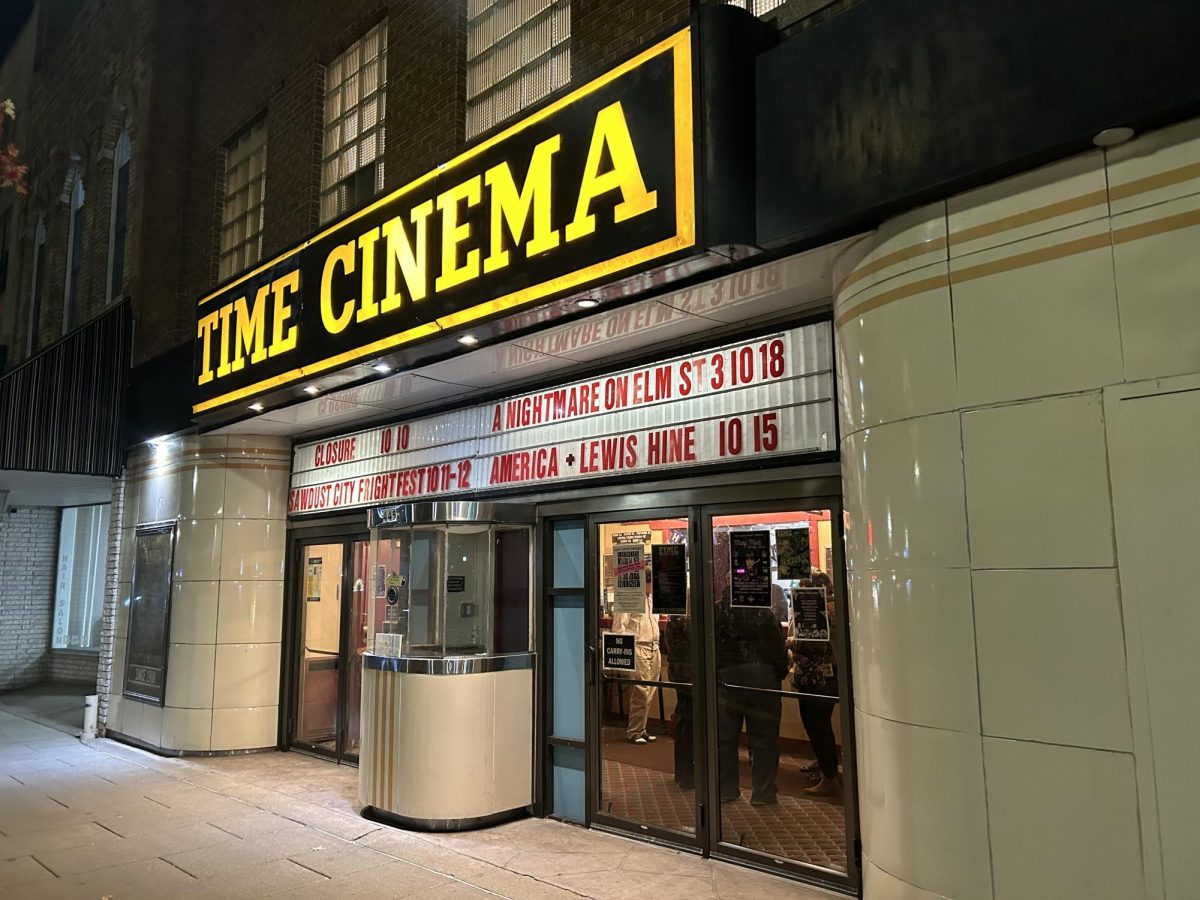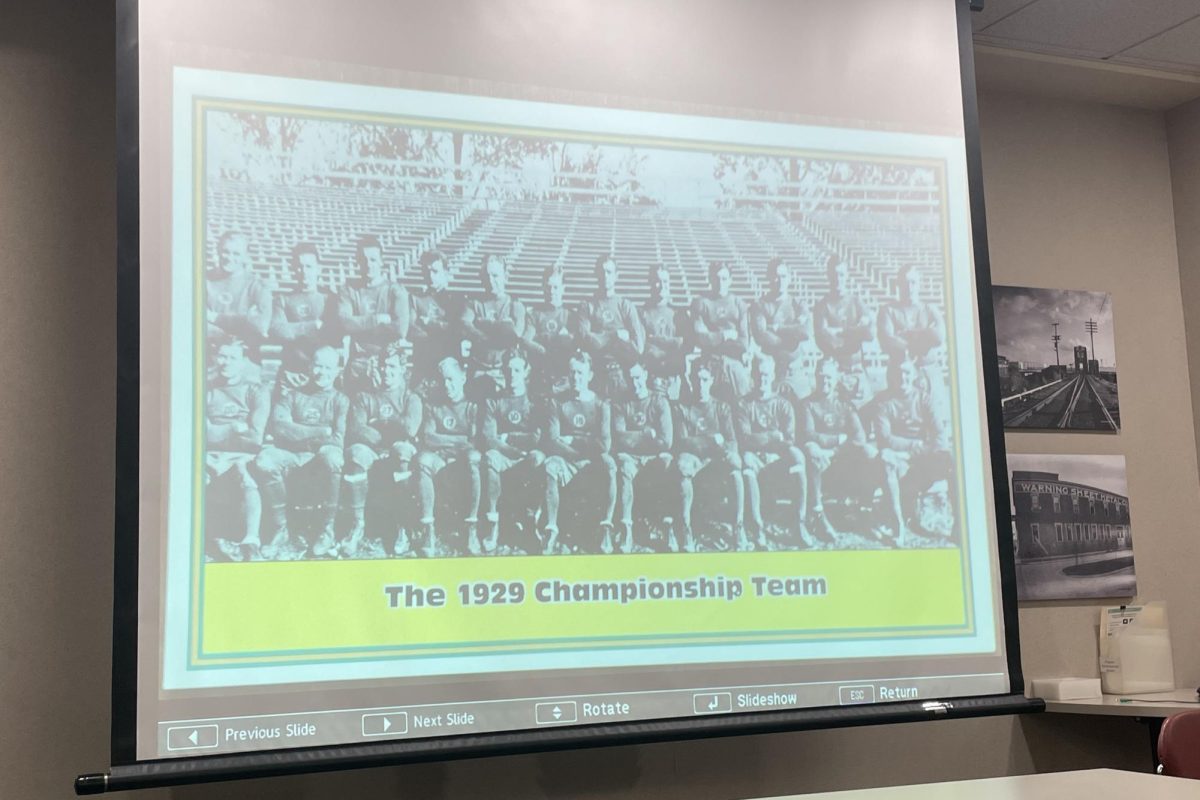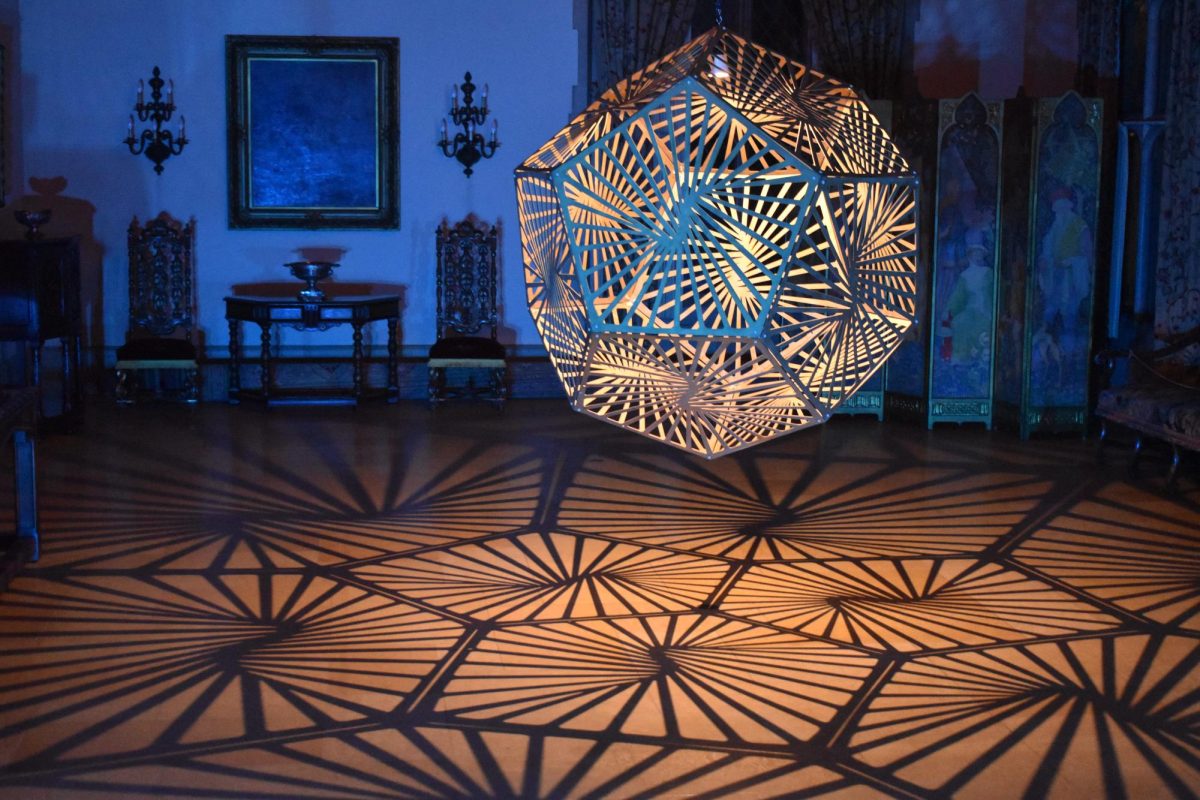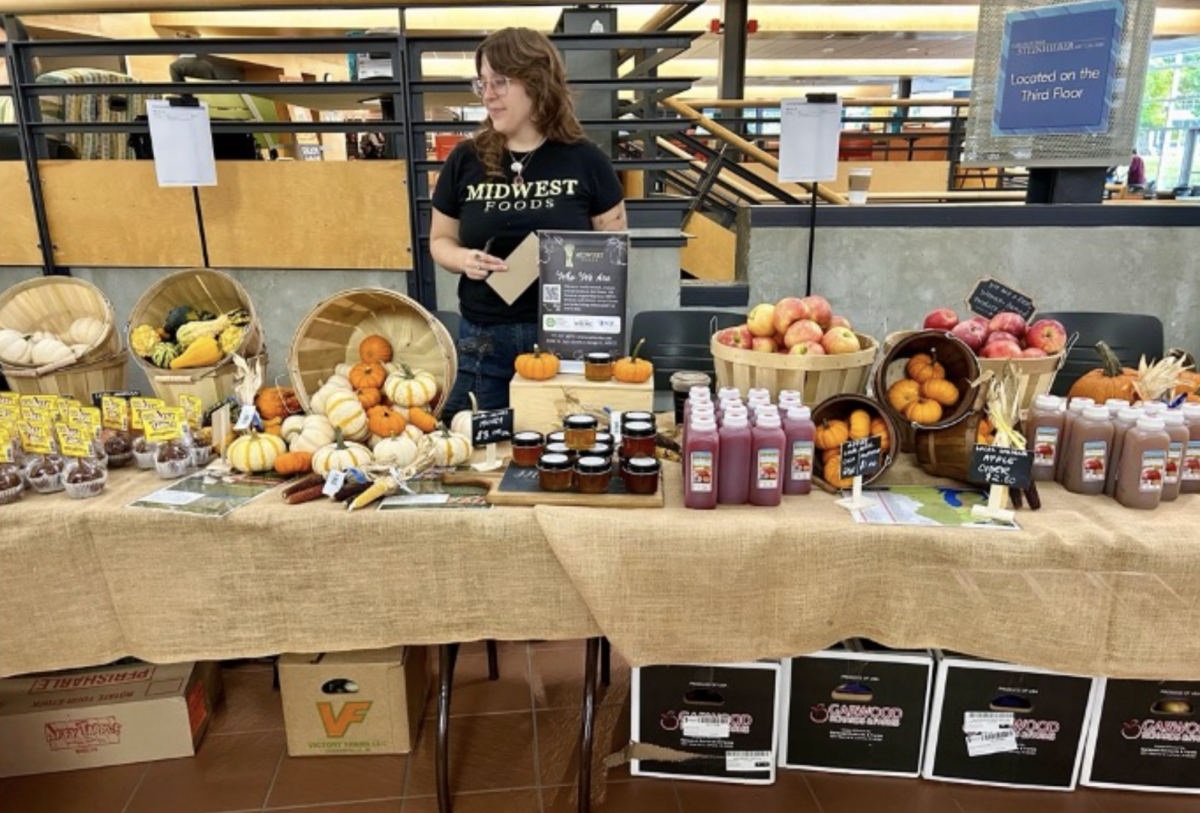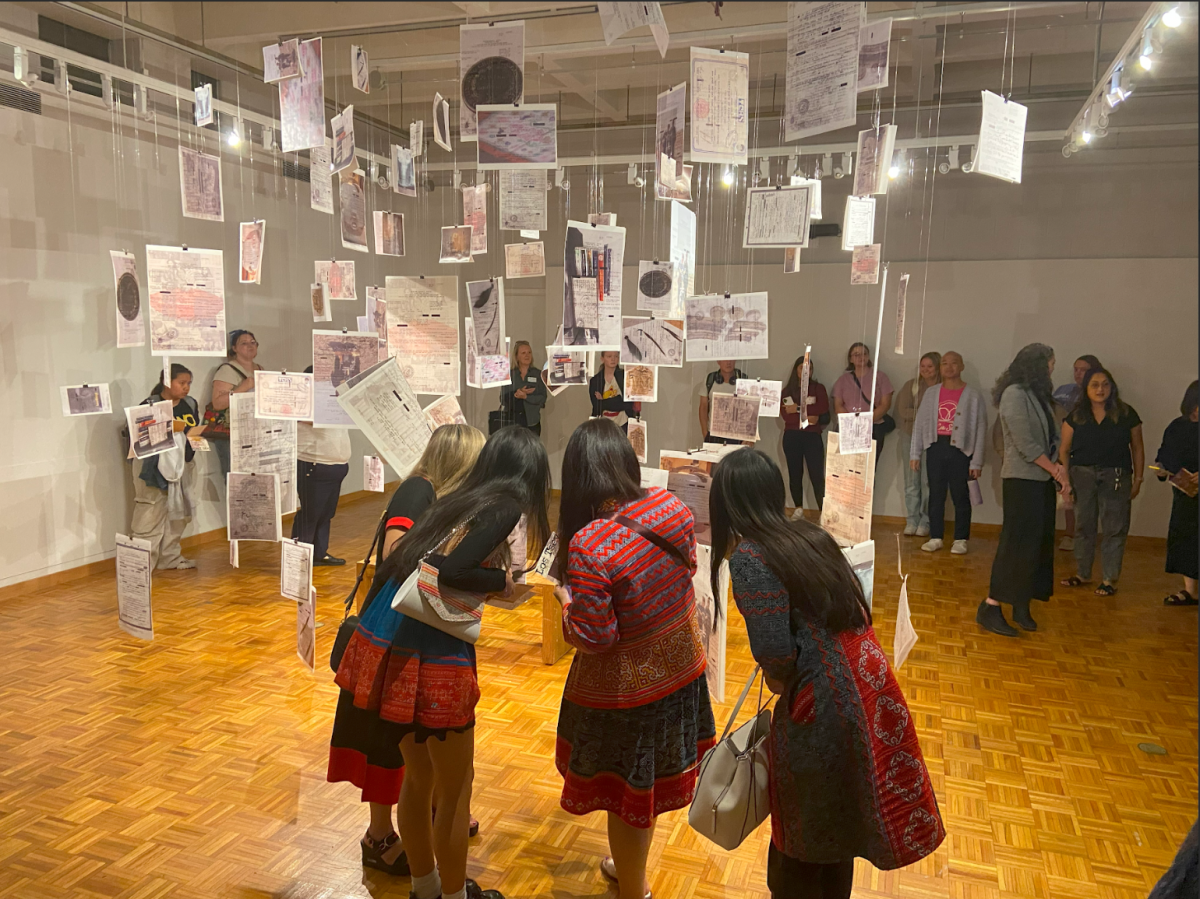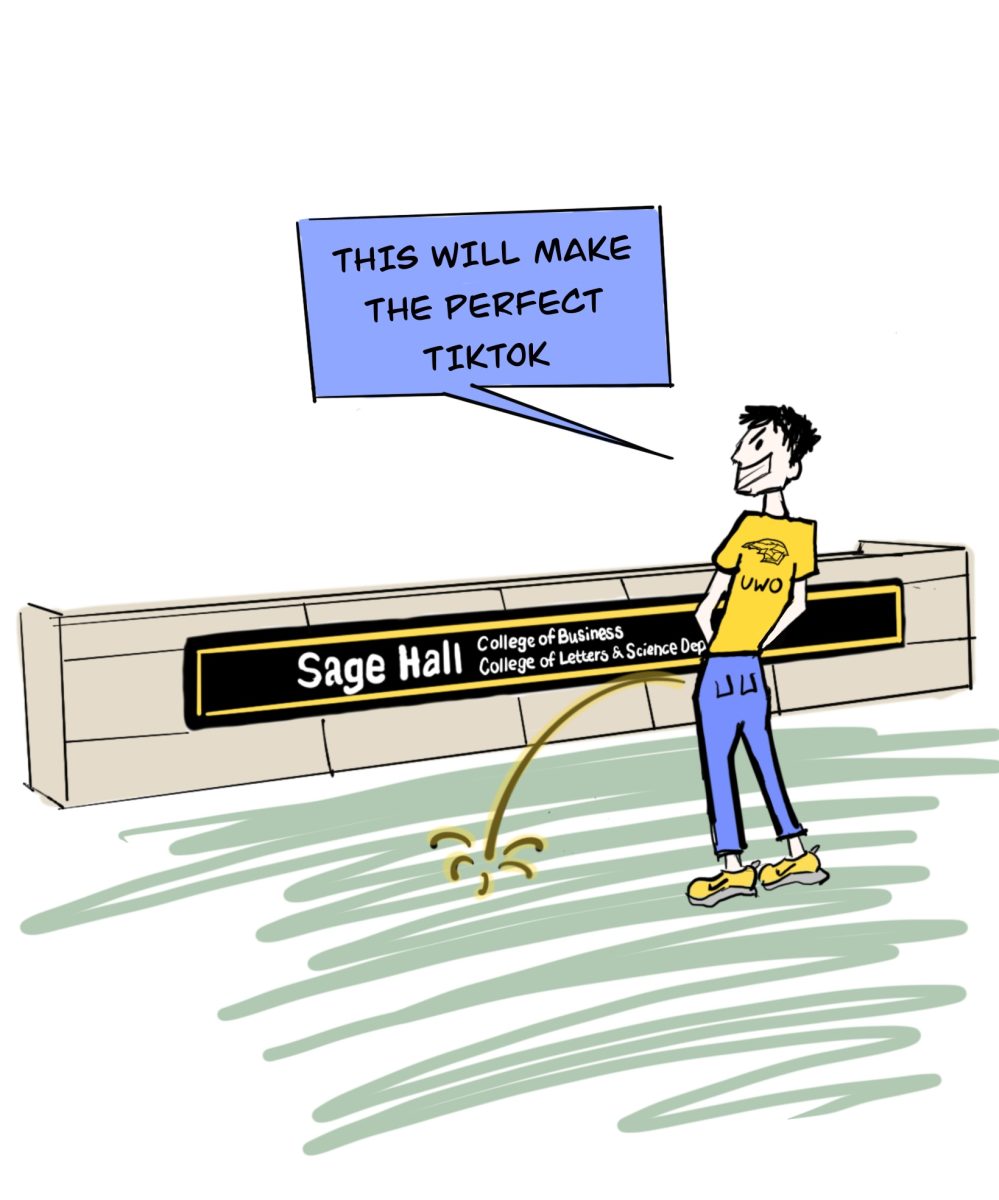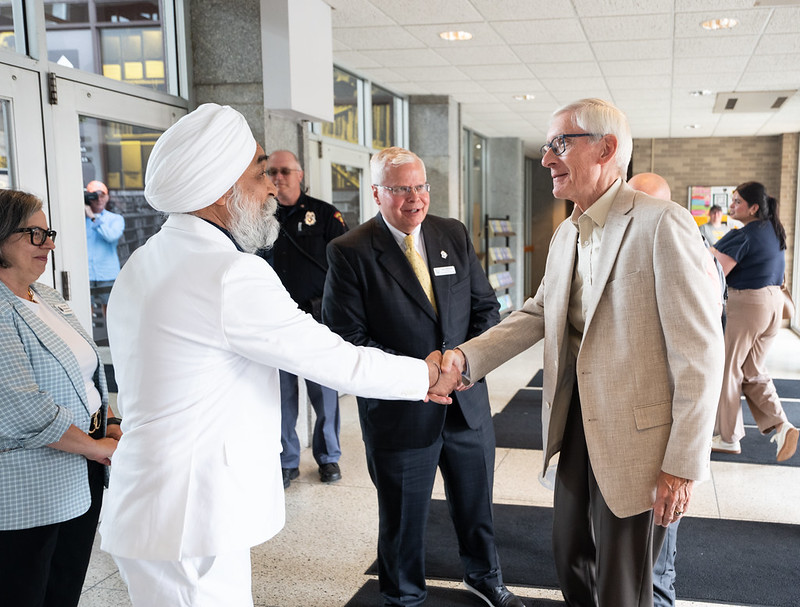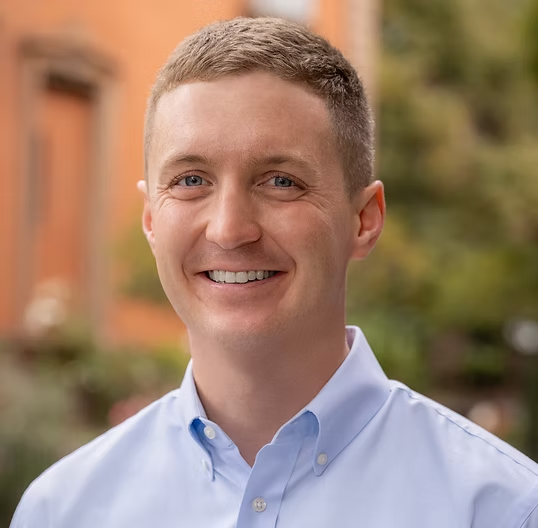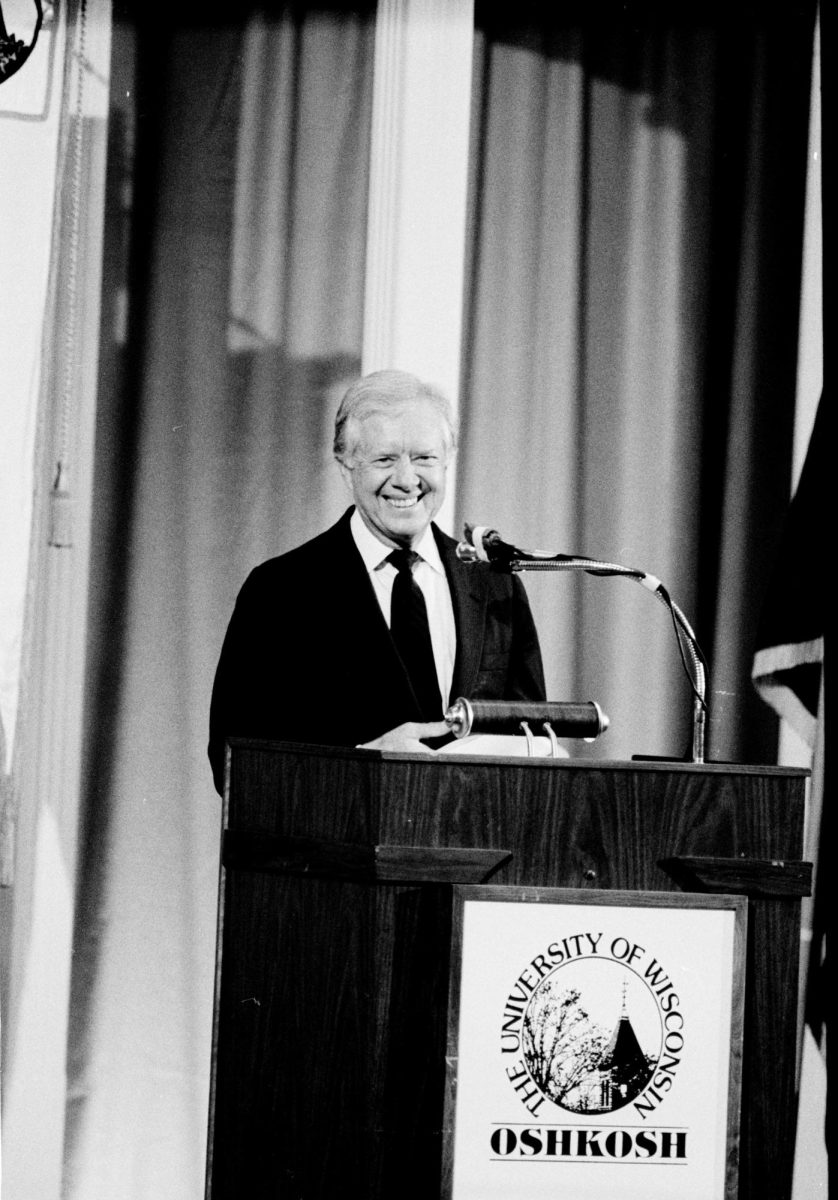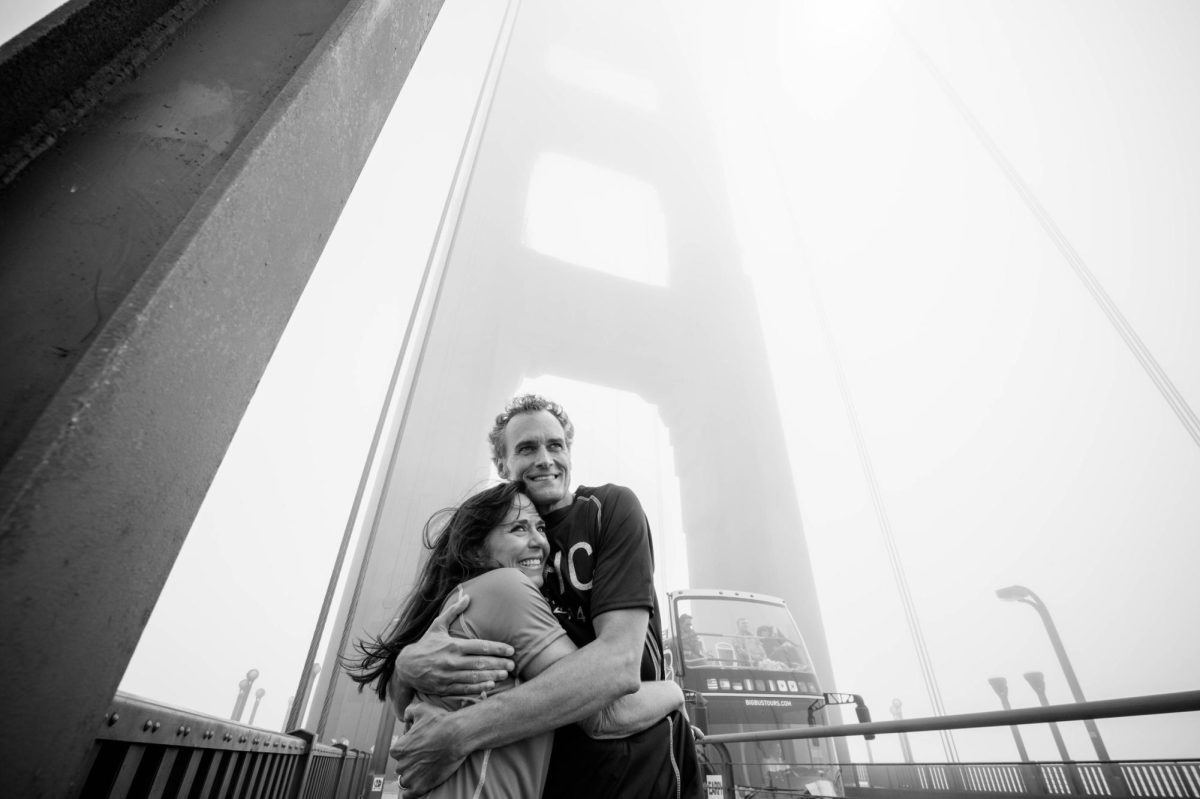“The Rocky Horror Picture Show” approaches its 50th anniversary. Its themes of sexuality, rebellion and self-expression remain relevant today, even in a small community like Oshkosh.
The film adaptation of “The Rocky Horror Picture Show” made its U.S. debut in September 1975, and while initially a box office bomb, midnight screenings became popular amongst alternative, LGBTQ+ and sex-positive communities as a form of self-expression.
The Time Community Theater hosts yearly screenings of the cult classic, bringing in everyone from teenagers who heard about the musical’s legacy from TikTok to people who have been screaming “Dammit Janet!” for decades.
Since 2010, local mail carrier Eric England, 37, takes on the persona of Dick T. Flemming, the event’s fiery host who gets the crowd howling with laughter.
“I used to do a lot of improv and stand-up,” England said. “I used to be cooler going onstage, but now I’m rusty and as much as I love hosting ‘Rocky Horror,’ I’m exhausted and happy when it’s over.”
England’s history with the cult classic began not at the Time Community Theater, but at the Oriental in Milwaukee where he lost his “virginity” and became cemented in the culture created by the midnight screenings.
“The joke when I was growing up was if you saw it for the first time on VH1 instead of in the theater, that was the saddest possible thing that could happen to you,” England said.
“I was one of those people, so my friends and I decided to check out an actual showing for ourselves, which made me fall absolutely in love.”
After attending his first event, England was drawn to the inclusivity of the fans, who encourage everyone to be their truest selves.
“I’ve never experienced any sort of judgment or gatekeeping at any ‘Rocky Horror’ show,” England said. “It’s a rare situation in itself to feel safe hanging out in your underwear in front of complete strangers, and to not have to think about it at all while you’re there is a very freeing experience.”
For England, he sees “Rocky Horror” screenings as an escape from societal expectations, as well as a way for people to connect with others without feeling out of place.
“I think people are worried about a lot of things, and one of those things is looking or feeling stupid,” England said.
“But with ‘Rocky Horror,’ you’re never going to look stupid if you dance or shout all these obscenities. Sometimes, you just have to get out of your own head, let go, and have fun because seeing ‘Rocky Horror Picture Show’ is the perfect time to not care.”
While the interactive elements of the film may seem peculiar, most theaters host a pre-show consisting of costume contests and sexually provocative games, a notable activity being willing participants moaning their father’s name like an animal of the audience’s choosing.
Once the movie begins, audience members begin shouting callouts to the screen, dancing to musical numbers and throwing various items like toast, rice and rolls of toilet paper during specific scenes.
England said that while newcomers may be nervous regarding these activities, it is all in good fun, and the unique experience adds a different element to the film that is unable to be captured from an at-home viewing.
“Attending a screening is a double-edged sword in the sense that it is the best and worst possible way to consume the film,” England said.
“If you’re a first timer going in completely blind, seeing it in the theater with people shouting at the screen and throwing pieces of toast will throw you for a loop. The plot of the movie barely matters as much as the culture, so while you may be overwhelmed, it’s the perfect way to view it.”
Rebecca Schmidt, 22, has attended the Time’s “Rocky Horror” screenings twice, and said that audience participation is required to get the full experience, no matter how nerve-wracking the experience may initially seem.
“Even if you’re nervous, you can’t just sit there or else it’s not fun,” Schmidt said. “It’s a mixed bag of people – some may not know anything, and some may be rapid-fire spit-balling every call-out without looking at the sheet they’re given at the start of the show. Regardless of your ‘status’ in the community, the enthusiasm is so infectious.”
Shanielle Hardin, a student at UWO, joined in on the festivities for the first time this year with their father, who used to attend midnight showings in his youth and wanted to pass down the tradition to his child.
Hardin said that while the event itself was out of their comfort zone as an introvert, it made for a unique experience with a community they were pleasantly surprised to witness.
“Typical theater etiquette is to be quiet and not sing along,” Hardin said. “But in that theater, you’re encouraged to be as obnoxious and rowdy as you see fit. It is a very open, inclusive event, and even though I didn’t know anyone there besides my dad, it felt like a big group of friends that have known each other for years.”
Hardin said that while the event is welcoming toward all walks of life, it tends to closely resonate more so with people who are a part of the communities that essentially ignited the culture.
“It is such a big movie for so many different people, whether they be in the queer, BDSM, theater or alt communities,” Hardin said.
“With ‘Rocky Horror,’ it’s one of those things where unless you really feel like a part of any of those communities, you’re not just going to go to a screening. It’s weird, it’s strange, and that can turn a lot of people away.”
England and Schmidt said that while the musical’s themes of sexuality and identity are vital to its legacy, an important aspect is its soundtrack, as O’Brien’s intention was to pay tribute to 1950s B-grade sci-fi through ‘70s glam rock.
“Like movies today, they were trying to hit that nostalgia button to draw in audiences like cats to catnip,” England said.
“It’s got a thumping soundtrack full of music like the stuff you’ll hear on a mix radio station, and still today it’s different from anything else you will ever hear yet it feels so familiar. It was very risqué for 1975 and was very boundary pushing overall,” Schmidt also said.
“But the fact that it’s a musical adds this layer that sets it apart from other movies. It’s like if you combined ‘Pink Flamingos’ and ‘Hairspray.’”
Recent articles have appeared online sparking debates on whether the film is problematic with its portrayal of the transgender community, with actor Tim Curry arguing on X that “it was bold, brave and brilliant for its time” despite its casting of cisgender actors to play trans roles.
Regardless of the sudden backlash, Schmidt believes that the musical’s adaptable themes both onscreen and onstage have helped it remain relevant for almost 50 years, despite some of its early pitfalls.
“Originally we had Tim Curry, a cisgender man, as Frank-N- Furter,” Schmidt said.
“Eventually, they did a live television remake with a trans actress a few years ago, and now there are many stage productions with trans cast members. So, it’s nice that they can take elements without taking away overarching themes like sexuality, gender, and acceptance.”
“Watching it as a teenager is nothing different than how I view it now,” England also said. “But there’s a lot of inappropriate content you could look at from a darker angle and pick it apart from a modern lens. But ‘Rocky Horror’s’’ intention is to be freeing, and it’s not looking down on anyone, which I think helps its case quite a bit.”
However, Schmidt believes that while ‘Rocky Horror’s’’ themes still hold up today, O’Brien’s musical does not carry the same weight of controversy it once did, citing growing support towards the communities that have embraced it.
“Times were different back then,” Schmidt said. “So for something like that to come out now and still be seen as ‘out there,’ there would have to be something really shocking in our current social climate, because we’re seeing more representation mainly with the queer community, which is always good, but it creates less of a chance for something groundbreaking to be released.”
Despite the criticism, England believes that the true strength of O’Brien’s horror-sexual satire is that it pushes audiences to question societal norms and learn the value of self-acceptance.
“The staying power for people is that it’s validating,” England said. “People tend to view this movie as an awakening, steering them away from a heteronormative worldview and opening them up to new possibilities. I think these things work in tandem and it will keep making this movie important for a very long time.”


